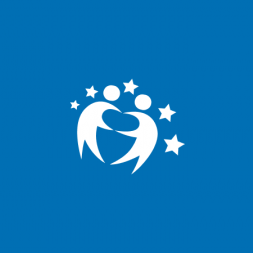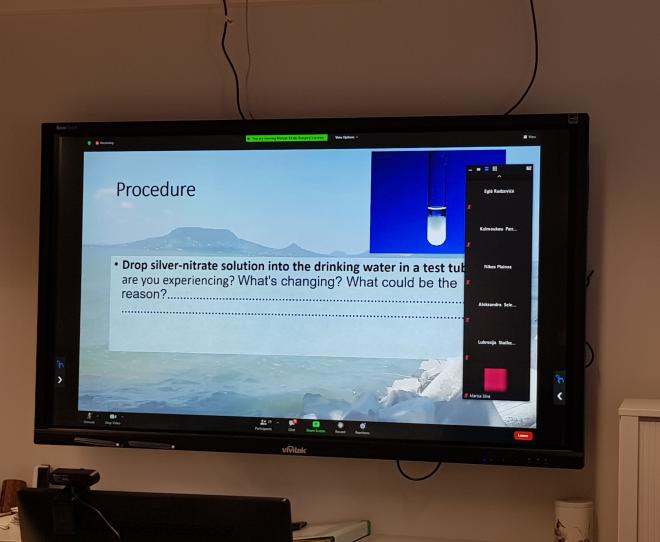1st LTT (virtual meeting) - "Water is every where" - Hungary
1st meeting - Virtual Activities of the Short-term Exchanges of Groups of Pupils C1 meeting in Zoom, Hungary
PROJECt WORKING DAYS
22.02/ 23.02/25.02/02.02/ 02.03 / 16.03.2020
Activities performed on Zoom
22nd February, 2021
- introductions
- ppts on each country and school prepared beforehand
- ice-breaking activities
- a quiz on the subject to find out the students’ knowledge on the subject before the workshops
Finnish students attending a virtual session
Finnish students doing their presentation
23rd February, 2021 Biology
I. Introduction, short film, presentation
-short movie and ppt about the ecosystem of Lake Balaton
-brief description of the equipments we will use during the workshop
-short discussion of the experiments we will carry out and see
II. Experiments
-getting to know the microscope
-studying water samples with a microscope
- chemical analysis of water (phosphates, nitrates)
III. Summary
-discussion of what students have seen & experienced
-short self-check test for evaluation
Instructions online
Finnish students doing the experiment
25th February, 2021 Geography
I Introduction
- short film about Lake Balaton and its geographical features
- measuring the temperature of air and water on the shore
- pH measurement – short movie + summary of data
- the wind – measurements on the shore of Lake Balaton
- illustration – the formation of the offshorewind
- Why is the wind important for sailers? - short film about how Róza sails
- the Lake Hévíz and Egerszalók video – special thermal waters of Hungary
- Karstification - How does it happen? – Luca` s explanation
II Experiments in the lab
- video about the experiment on the sand table
- water permeability of soils – live experiment in the lab
III Summary test
watching the video
2nd March, 2021 Chemistry
I Introdution
- presentation of the geochemistry of Lake Balaton: the main rocks, sediments of the catchment basin which influence the content of the sediment and the water of the Lake.
II Expriments
- pH value: 3 samples in test tubes and reagent added; the colour change; the pH value of the waters can be observe
- the total hardness of water: calcium- and magnesium-ions from the water samples are measured by adding reagent and watching the change in colour
- total salt content: samples are put into beakers and heated until all the water has evaporised, the percipation can be seen
- sugar content of soft drinks: Fehling reaction is used to detect the sugar content of some soft drinks
If the sample (soft drink) contains sugar (glucose and/or fructose) the sample and the reagent changes from blue to green and red when heated. The speed of the reaction depends on the concentration of the sugar.
III Summary
- the results of the experiments shown
- dicussion on the results with the help of questions in small groups
Finnish students listening to and watching the introduction to chemistry assignment
ready for chemistry experiment in Pielisjoen koulu
3rd March, 2021 Physics
Experiments with preparation workandperformed together during the online session | Experiments without preparationand observed only | |
Experiment | Equipment | Experiment |
TeaLight – Bouyancy, floating according density.
| digital kitchen scales, more than>500g maximum range with „Tara weight” mode ideally 1 pieces of glass jar ( about 800 ml volume)- 1tealight water from tap/lake/sea screw-nut as weight
| IceMelting- into a glass of soft drink Excel simulation finding out the common temperature. |
Experiment | Equipment | Experiment |
VitalCapacity– Comparison of lung capacities
| According our video recording you can blow air through a PVC-tube (6mm diameter, about 60-80 cm length). The competition is going to be online, and let’s suppose, the Internet will not produce 3-4 – second delays!
| Ions - as the base of eletric current in fluids |
Instructions online from Hungary
Portuguese students doing the physics experiments in their school
16th March, 2021
- feedback session
- padlet for comments by the students and teachers
- a quiz to find out the students’ knowledge on the subject after the workshops

















